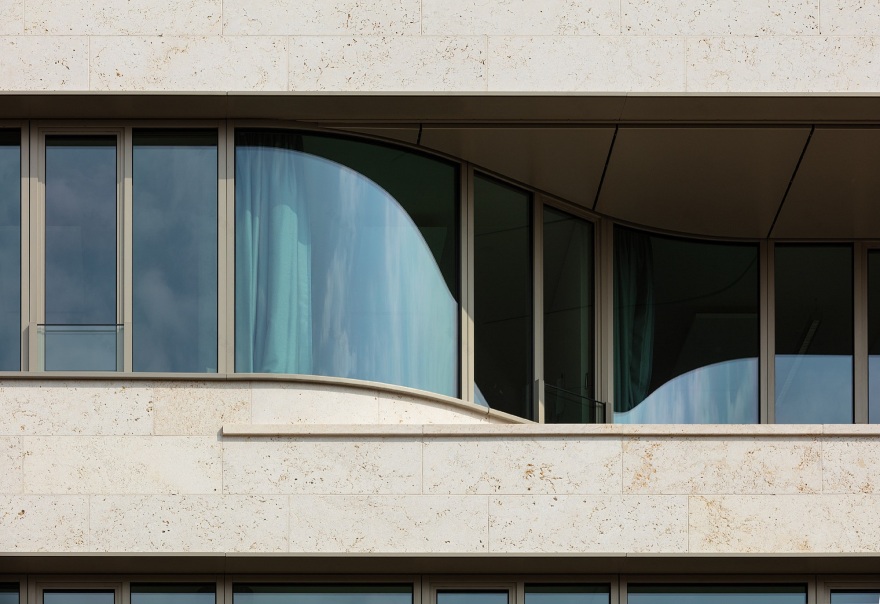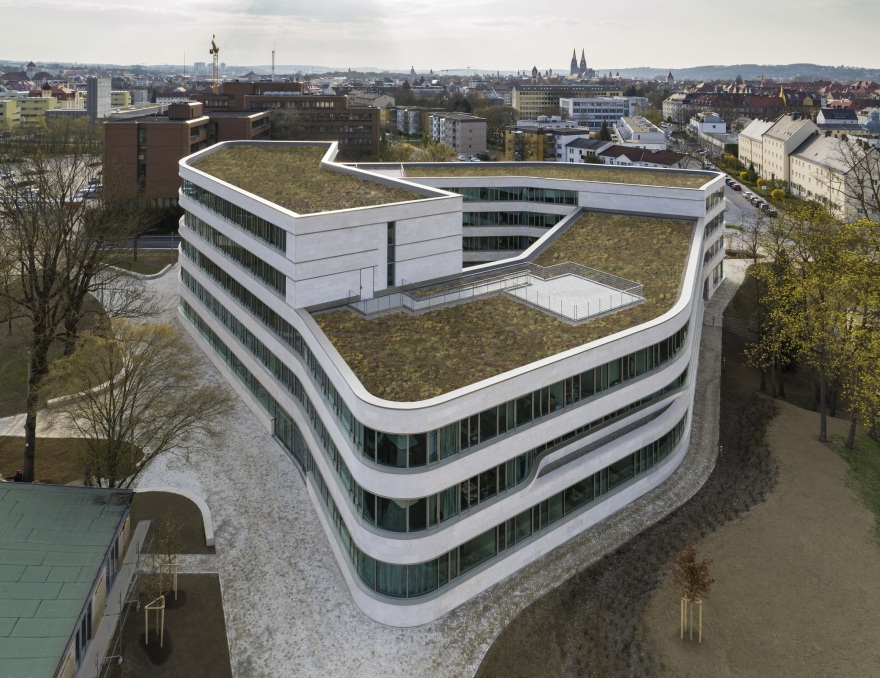查看完整案例


收藏

下载

翻译
The design process when planning a head office for a municipal energy company can differ significantly depending on whether the location is an anonymous metropolitan structure, greenfield land, or – as in this case – a 2000-year-old city like Regensburg, whose city center was included in the 2006 UNESCO World Heritage List.
Optimizing processes, increasing flexibility, creating an identity, linking company departments, sensitive urban repairs - these were some of the project goals formulated by the client for a restricted competition in 2016.
The answer was an organically curved building that elegantly enters into dialogue with the heterogeneous surroundings but is nevertheless confidently perceived as a solitaire. Due to its exposed location, the building does not have a classic rear face, instead, the different levels of the building respond to the surroundings.
The self-contained building creates very versatile areas within, flooded with light and easily adaptable according to the changing requirements of the modern working world. The interior design concept references the elegant natural stone façade in materials and colour moods, without imitating it.
The outdoor areas link playfully with the surrounding development and echo the basic organic shape of the building in a free interpretation. As a result, several interlocking outdoor areas are created, integrating the surroundings, forming small squares, and leading back into the freely accessible and lavishly designed inner courtyard of the building.
Connecting the existing trees with sophisticated raised beds encompassing seating areas creates a very special ambiance that can be enjoyed by employees and neighbours alike. The open-air areas and recreational facilities extend to the individually staggered roofs, which offer generous terraces for employee use in addition to extensive green roofs.
Regional facade materials serve as a visible contribution to sustainability and identity - the natural stone Kehlheimer Limestone is sourced in the immediate vicinity of Regensburg.
In order to fully utilize the design possibilities of a natural stone facade, distinctive surfaces were created on the individual parapets with the help of stone masonry methods such as hammering and tooling. This creates noticeable variations and fine nuances in light reflection and shadow formation, further enlivening the curved facade.
Precision and consistency in the implementation of fewer but more essential design elements such as curves, materials and surface finishes characterize the building also lending it a timeless quality.
These properties, as well as the calm and precise design aspects, constitute a prerequisite for joining the many successful and important buildings in Regensburg for the long term.
客服
消息
收藏
下载
最近





















